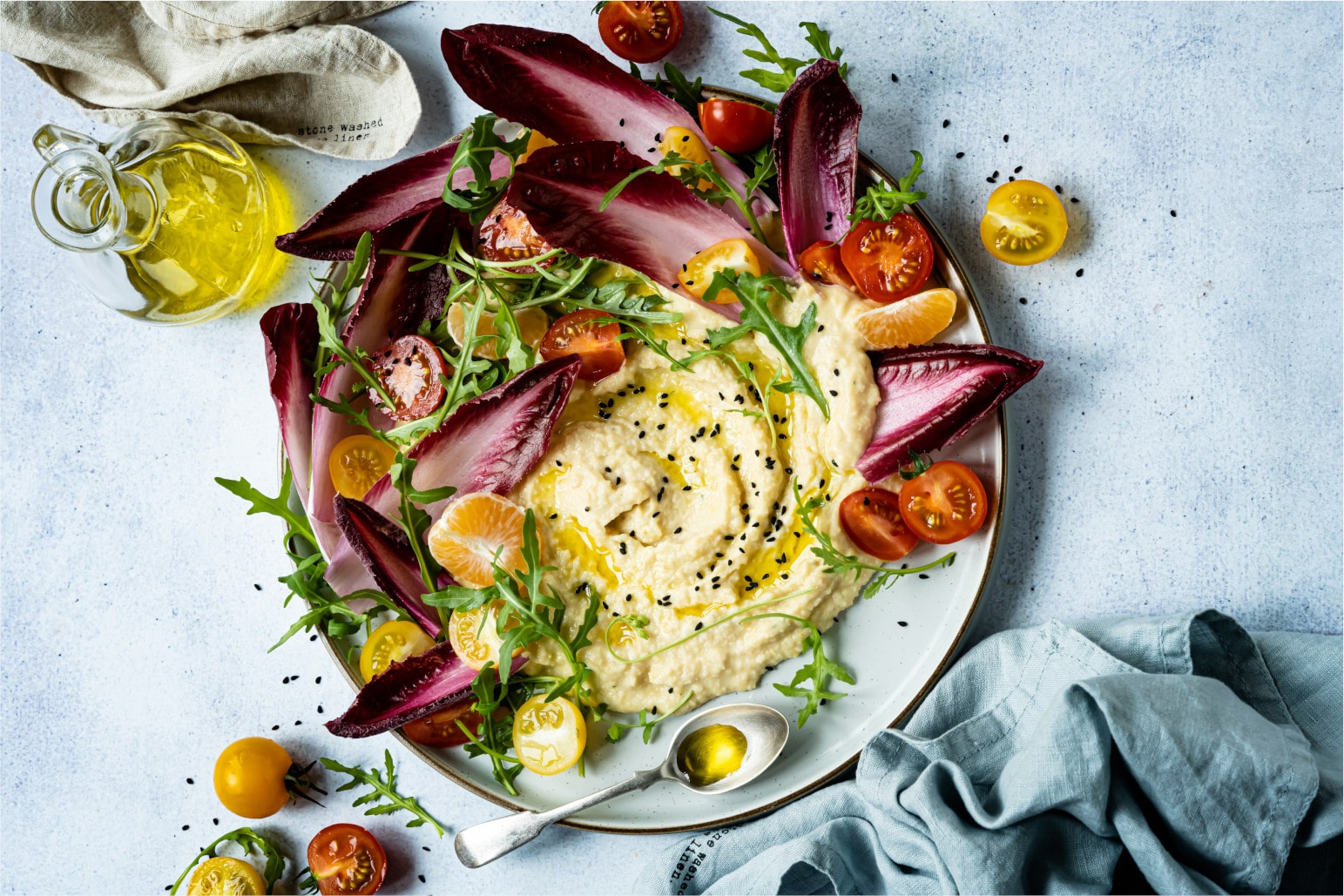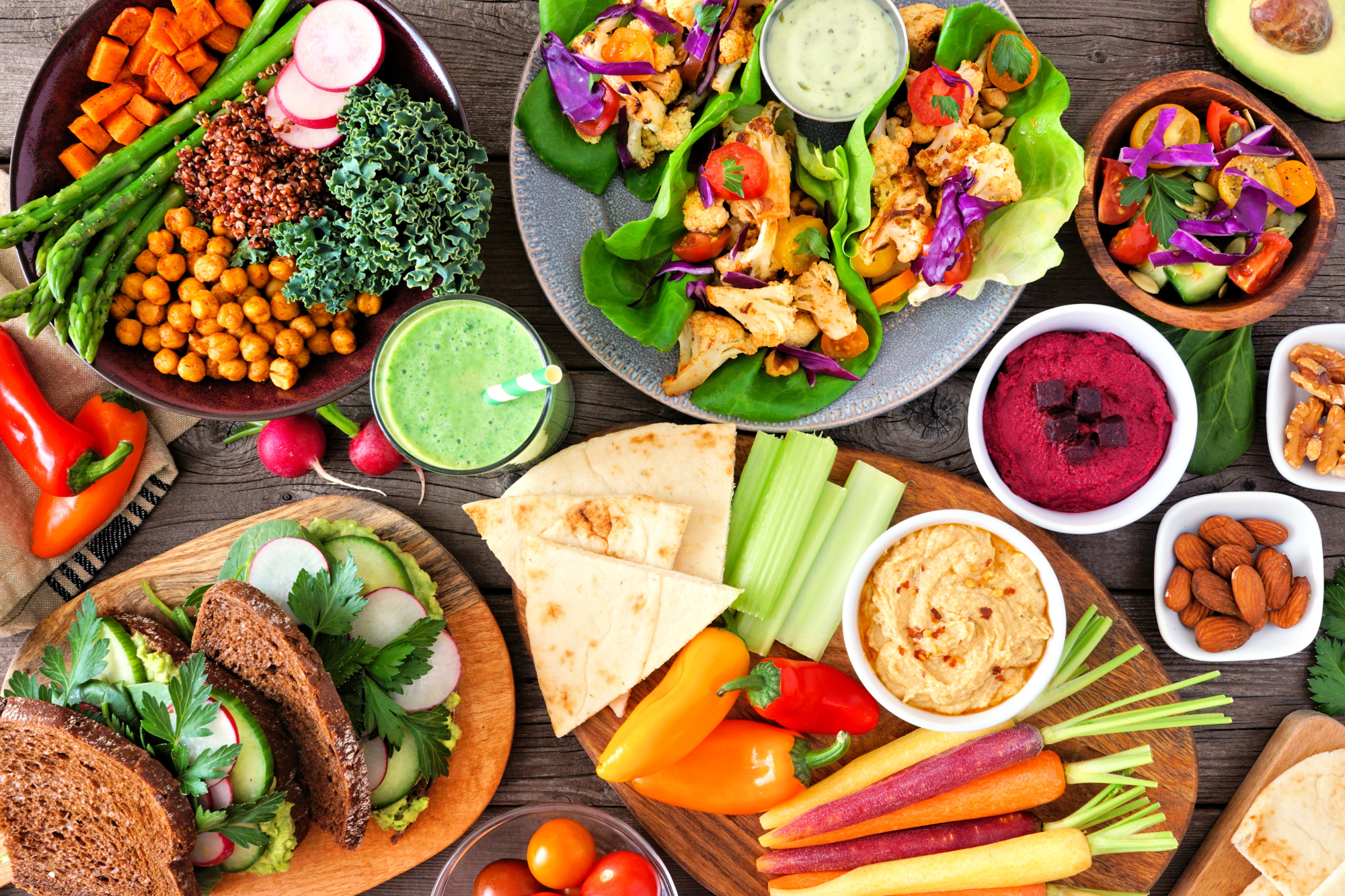Any flexitarian will tell you that moving from a meat-centred diet to a plant-centred one is made much easier by the availability of plant-based alternatives, such as veggie burgers and sausages or meatless chicken pieces. A plate filled with scrumptious wholefoods such as vegetables, grains, and legumes is given that extra appeal by plant-based alternatives.
The taste, texture and appearance of plant-based products means that most consumers won’t notice the difference at meal times when veggie meatballs or meat-free bacon are added.
Compared to conventional meat, plant-based alternatives have a much lower carbon footprint, use far less land and water, and produce less air and water pollution – and they don’t require the use of antibiotics or contribute to the risk of a pandemic.
As meat alternatives have grown in popularity, so too have the questions about how healthy they are as they often fall into the category of ‘processed foods’.
However, three things are important to note here: the meaning of “healthy”; the meaning of “processed”; and the number of ingredients used.
Healthy option
Plant-based meat alternatives can be healthier1 than animal-based foods as they tend to contain:
- zero cholesterol
- more complex carbohydrates
- healthy fibre (beef, chicken, pork, and seafood have no fibre at all)
- no antibiotic residues
- no hormones
- no heavy metals
- no pathogenic bacteria or viruses
- no faeces.
Processed foods
Are processed foods healthy? Here, it is important to distinguish between processed foods and ultra-processed foods.
Everytime you cook or modify raw food, that counts as processing. Bread, pasta, pasteurised milk, and many other food staples are processed in this sense, as are many plant-based products.
Then there are ultra-processed foods, which may include synthetic additives, involve chemical processing, and involve foods or food-like substances that are never or rarely used in kitchens (these include high-fructose corn syrup, hydrogenated or interesterified oils, and hydrolysed proteins).2
Just because a food item is processed does not necessarily mean that it is unhealthy. Many people around the world only get enough to eat thanks to processed foods.
In terms of sustainability, processed foods are produced in such a way that they have a long shelf life so they help to cut down on food waste. Additionally, as the population of the planet continues to grow, we will need to engineer new processed foods to ensure everyone gets enough to eat from the finite resources available to us.
At the same time, producers are aware of consumers’ demand for less processed food items and are working to reduce the amount of processing. However, it is the quality and nature of a plant-based product’s ingredients that is important, not simply the fact that it has been processed.
Number of ingredients
The length of an ingredients list does not necessarily determine how healthy the product is. If you cook at home, you may use many different ingredients to make a healthy dish.
All the ingredients have to be listed on plant-based labelling so you know what your eating – and what you’re eating is often high-quality protein and little or no cholesterol.
Balanced diets are healthy diets
In general, ProVeg advocates for a balanced plant-based diet, with plenty of fruit and vegetables. We recommend you consume plant-based alternatives in moderation – just as you wouldn’t eat an animal-based burger everyday, you shouldn’t eat a plant-based one everyday either. However in the case of processed red meat, it is particularly important to moderate consumption as it has been classified by the International Agency for Research on Cancer (IARC) as carcinogenic.
In summary, the ideal plant-based diet is one rich in grains, legumes, nuts, and vegetables, with plant-based alternatives to meat dishes adding taste, health, and sustainability benefits. This approach makes a plant-based diet simply unbeatable!










